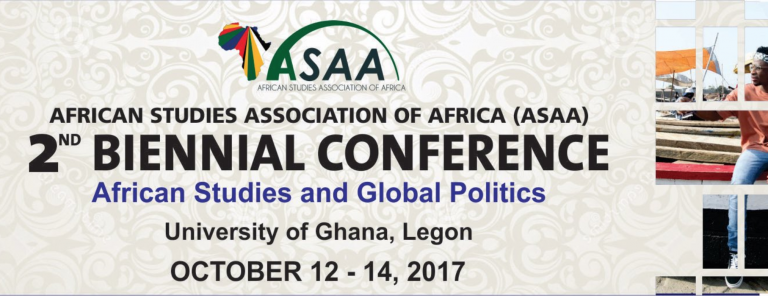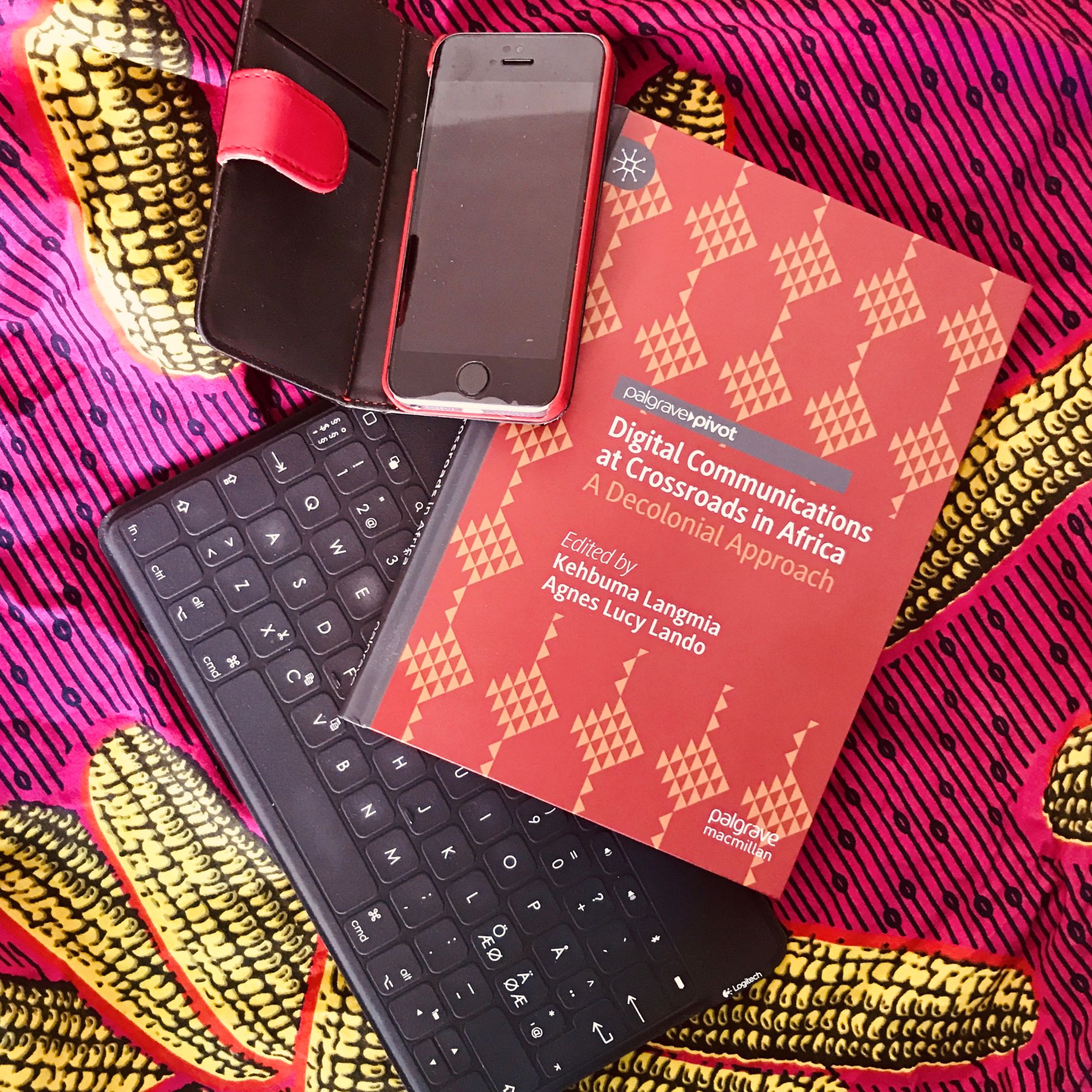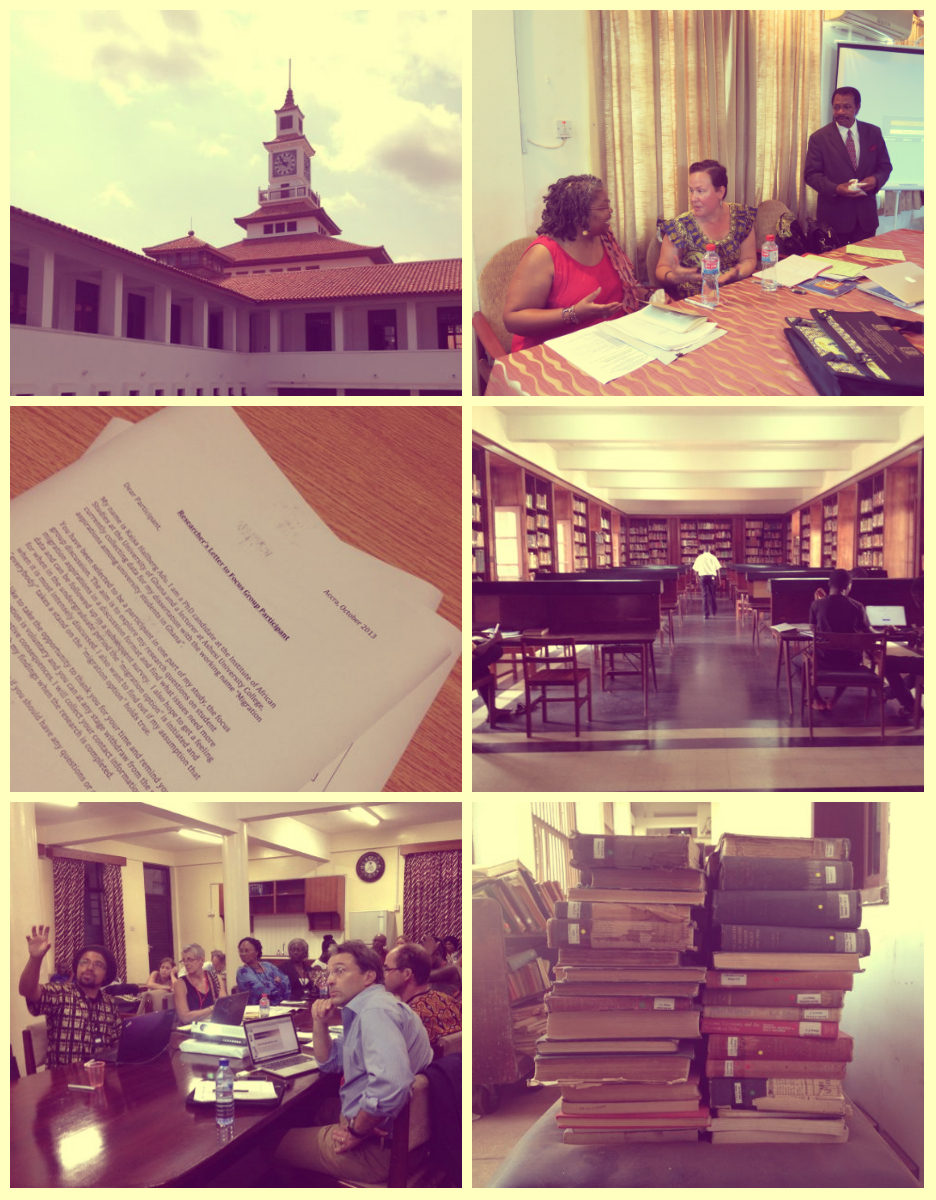 On Thursday, the Second Biennial African Studies Association of Africa (AS-AA) conference is taking off here in my academic home, the Institute of African Studies at University of Ghana Legon.
On Thursday, the Second Biennial African Studies Association of Africa (AS-AA) conference is taking off here in my academic home, the Institute of African Studies at University of Ghana Legon.
It is a three-day conference with the subtheme that almost reads as my tagline: African Studies and Global Politics.
Together with my colleague Kafui Tsekpo I am presenting a draft paper on social media in Ghanaian elections. Is it a new form of democratic participation? What are the opportunities and limitations? It is presented at the very last session of the conference, Saturday at 5 pm in the School of Law Examination Room. The collaboration comes out of a discussion at the Ghana Studies Conference last summer. I’ll also be the chair for one session. It’s a big deal for me as it is the first time I am chairing an academic session!
The program for the AS-AA conference is long and winding (find in full here PDF) so I made my own cheat sheet, in brackets are notes on the panel sessions (PS) I might attend.
Hope to see you there!
Thu 12
8.30-9.00 arrival great hall
9.00am program starts
11.45-1.15 pm PS 1 (1.2 decolonial edu)
1.15-2.15 Lunch, IAS
2.15-3.45pm PS 2 (2.4 Regina Fuller gender, examination room, school of law)
4.00-5.30pm PS 3 (3.1 Nketiah Conference hall)
7-8.30pm Akwaaba night with Chief Moomen, IAS quadrangle
Fri 13
8-9 reg
9.00-10.30 Keynote, Prof Gordon, Prof Allman, Dr Wa Goro (ADB), Nketiah Hall
10.30-10.50 break
11.00-12.30 PS 4 (4.4 Prof Adomako Ampofo tomorrows leaders 4.5 roundtable)
12.30-1.30 Lunch IAS
1.30-3.00pm PS 5 (5.1 African Agency George Bob Milliar in Nketiah or 5.6 panafricanism Leciad)
3.15-4.45 PS 6 (6.3 Democratic condo in Seminar room ias, 6.6 edu with Millicent as chair in leciad)
5.00-6.30pm PS 7 (7.1 citizenship in Nketiah, 7.2 Millicent in Senior common room ias)
7-8.30 AASA Business meeting
8.30-10 film
Sat 14
9-10.30 Keynote Professors Yao Graham, Takyiwaa Manuh, Seth Asumah (Nketiah hall)
10.30-10.50 break
11-12.30 PS 8
12.30-1.30 lunch
1.30-3.00pm PS 9 (9.2 decolonizing edu)
3.15-4.45 PS 10 (10.5 publish that article)
>>5.00-6.30 PS 11 (11.4 Role of Social media in School of law examination room)
7.30-10.00 Closing banquet Great Hall



 This week, my department, the
This week, my department, the 
